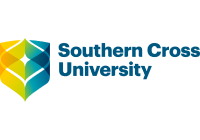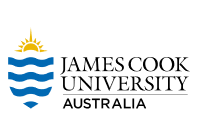Are you considering an MBA to advance your career? How much are the fees for an MBA? This guide explores the various components of an MBA's cost.
What is an MBA?
MBA, or Master of Business Administration, is a prestigious postgraduate degree designed to develop skills required for careers in business and management. It's globally recognised and can open many doors in the corporate world.
Quick Links To Online MBA Programs
RMIT Online
Master of Business Administration (MBA) Online
- 2.7 years part-time, Reduced duration available
- Jan, Mar, May, July, Aug, Oct
- $4,560 per course, FEE-HELP available
Southern Cross University
Master of Business Administration (MBA) Online
- 2 years part-time
- Jan, Mar, May, July, Aug, Oct
- $2,990 per unit, FEE-HELP available
UTS Online
Master of Business Administration (Online)
- 2 years (minimum), Part-time
- 12 subjects | 7-week study blocks
- $4,250 per subject, FEE-HELP available
James Cook University
Master of Business Administration Global (MBA Online)
- 24 months , Part-time
- $3,700 per subject , FEE-HELP is available
- 12 (One subject per each 7-week study period)
Factors Affecting MBA Cost

Several factors can influence the cost of an MBA. Let's break them down:
Tuition Fees
Tuition is the most obvious cost. However, this can vary widely depending on the institution and course length.
Cost of Living
Remember to consider living expenses, including accommodation, food, and utilities. This can also greatly vary depending on the city or country where the university is located.
Study Materials
Books, online resources, software – they all add up. Some are included in tuition. Others aren't.
Travel Expenses
Travelling to and from campus, or even relocating to a new city or country, can be a significant expense.
MBA Cost Based on Location
Location plays a crucial role in the cost of an MBA. Let's compare:
MBA in the US
MBA programs in the US can be quite expensive, with top schools charging over $60,000 per year for tuition alone.
MBA in Europe
European MBAs tend to be cheaper, with annual tuition fees between $10,000 and $50,000.
MBA in Asia
In Asia, the cost of an MBA can be significantly lower, with tuition fees starting from $5,000 per year.
Scholarships and Financial Aids
Scholarships, grants, and student loans can significantly reduce the financial burden of an MBA. In addition, many institutions offer financial aid packages, so remember to explore these options.
Cost vs. Return on Investment
While an MBA can be expensive, it's important to consider the potential return on investment. Is the price tag worth it? Let's consider some factors:
Salary After MBA
Generally, MBA graduates earn significantly higher salaries compared to their pre-MBA earnings. According to the Graduate Management Admission Council, the median salary for MBA graduates is about $115,000.
Career Opportunities
An MBA can open doors to senior management roles and new industries. In addition, the degree is respected globally, making international career opportunities more accessible.
What Does An MBA Cost, And Is It Worth It?
The Master of Business Administration (MBA) degree could be the appropriate choice if you want to strengthen your leadership abilities in the business world while advancing your career in that area.
Although acquiring a master's degree in business administration (MBA) can result in increased earning potential and even signing bonuses, the question is whether or not it is worthwhile to spend two years of your life studying this degree. This article describes the typical costs of completing a Master of Business Administration degree, such as tuition and other expenditures.
What Is the Average MBA Cost?
The cost of earning a master's degree in business administration (MBA) is extremely high. According to data provided by the Education Data Initiative in November 2022, the price of a master's degree can range anywhere from $30,000 to $120,000. According to these numbers, the typical MBA expense is $61,800.
The cost of earning a master's degree in business administration (MBA) at Harvard Business School, for example, is $112,760, while the same degree from Binghamton University costs in-state students only $17,470. Both MBAs are completed in s years. According to the National Centre for Education Statistics, the cost of an average master's degree is $19,749 per year. This figure is derived from comparing the cost of an MBA to the total tuition and fees required for all graduate degrees.
Actual Cost of an MBA
It is important to remember that tuition is not the sole cost associated with MBA programmes. You must also consider administrative fees, textbooks, transportation, and your state's standard living cost.
One of the most important considerations when determining where to enrol is the tuition differential between public and private schools. State universities are typically more affordable than private universities. Still, if you do not currently reside in the state where you intend to attend a public institution, you must pay additional out-of-state tuition costs.
For instance, the tuition for an MBA from Binghamton University is $15,000 per academic year for New York residents, while it is $24,390 per academic year for students who are not from New York and dying internationally. In comparison, the University of Chicago, a private institution, has a tuition fee of $77,841 for its full-time MBA programme that is attended three-quarters of the year. Remember that these calculations are based on a person living alone without any dependents and do not consider any financial aid.
What Does a Top-Ranked MBA Cost?
The tuition, fees, and other costs associated with top-ranked MBA programmes are broken down in this article by BusinessBecause. According to the research published by BusinessBecause in 2022, the typical cost of a top MBA in the United States was roughly $225,605. This total considers tuition, fees, living expenses, medical care, and supplies.
Is the Cost of an MBA Program Worth it?
Is getting an MBA worth the money? The answer to that question depends on your particular objectives and the state of your finances.
If you acquire a master's degree in business administration, your earning potential and job growth chances will both increase. A poll conducted in 2022 by the Graduate Management Admissions Council (GMAC) found that 92% of corporate recruiters and 95% of staffing agencies intended to hire recent MBA graduates. The poll also revealed that the expected beginning salary for those with master's degrees in business administration was noticeably greater than those for individuals with bachelor's degrees.
Not all businesses have the same opinion of MBAs. Since the Covid-19 epidemic, some businesses would prefer business school graduates with previous work experience. Candidates for employment at certain types of organisations, such as NGOs, will not be required to have an MBA.
Return on Investment (ROI)
Before deciding whether or not to pursue a master's of business administration degree, it is vital to have a specific aim in mind. The rate of return (ROI) is a popular metric used to evaluate investments of all kinds, and getting an MBA is an investment in your owner.
MBA graduates from top-ranked schools typically earn greater wages and have access to a wider variety of employment prospects. But does this justify the expense of obtaining a prestigious MBA degree?
A basic method for evaluating an MBA's return on investment (ROI) would be to divide the possible salary you could earn after completing your MBA by the overall cost of your MBA. This would include tuition, fees, living expenses, and wages missed while you were attending school. After that, increase this number by 100 to get your return on investment. For instance, if the cost of your MBA is $100,000 and your beginning income after graduation is $100,000 per year, you will begin to realise a return on your investment (ROI) after working full-time for one year at the wage at which you started.
MBA Graduate Earning Potential
According to a survey by GMAC, the median starting wage for new MBA recruits in the United States is currently $115,000. However, only $75,000 was the median starting pay for those with a bachelor's degree, and the median starting earnings for other master's degrees were likewise lower than those for MBAs.
The only starting salary that came close to matching the median salary for MBA graduates was the median starting salary for experienced applicants who came directly from the user. This salary was $115,000. This represented a significant rise over the median starting income of $85,000 anticipated for this group in 2021.
Does an MBA Pay Off?
An MBA is usually a worthwhile investment. According to the Education Data Initiative, the typical price of a master's of business administration programme is less than $63,000. This is something that we are aware of. A recent MBA graduate may earn a median beginning salary of $115,000, double the typical MBA cost. You may recoup the cost of your MBA within one year of working full-time if you get it at a reputable institution.
Factors affecting the cost of an MBA program
A student's residency status, the choice between part-time and full-time enrolment, the sort of institution they attend, and whether or not they pursue their education on-campus or online are some elements that determine the total cost of an MBA programme. On-campus costs, such as those for lodging and board, can add up quickly and are very wide in educational institutions.
Enrollment status
If you're considering getting an MBA, one of the most important choices you'll have to make is whether or not to enrol in the programme on a part-time or full-time basis. MBA programmes attended on-campus full-time often demand the biggest investment due to the expense of accommodation and board, the possibility of relocating, and the income and opportunities lost throughout the programme. The cost of an MBA may be increased by an additional $20,000 to $60,000 due to living expenses, depending on the institution that you choose to attend.
Students continue working while enrolled in part-time programmes. Completing these programmes often takes students three years or more and requires them to pay for each credit individually. The average cost of tuition for one credit at public colleges is approximately $230 per credit, while the cost at private institutions is almost $2,000 on average.
Program type
When choosing a master of business administration (MBA) programme, you should consider the length of the programme and the mode of instruction that will be provided to you. MBA programmes normally require between 30 and 60 credits to be completed, and they can be finished in two years of full-time study. However, many institutions also provide fast-track MBA programmes that can be completed in a single calendar year. These programmes may result in large reductions in the price of housing and board, as well as tuition and fees. Additionally, graduates typically reenter the workforce within a year of graduation, lessening the impact of lost pay.
Enrolling in online programmes can sometimes bring down the cost of obtaining an MBA. Several online programmes do not impose additional costs on participants from another state. In addition, many students who attend classes online also have full-time jobs, so they do not have to pay on-campus facility fees or the cost of lodging and board.
School type
The cost of an MBA programme is also affected by the sort of school that the student attends. Private institutions generally have higher tuition rates than public schools, with in-state residents typically paying the lowest rates at public colleges and universities. As a result, the most prominent programmes and those providing additional services typically have a higher price tag.
How much does an online MBA cost?

The cost of an online education can range anywhere from $250 to $2,200 per credit and is often comparable to that of an in-person education. Even while some colleges do not assess additional fees for students attending from other states, the total cost of tuition for an online student may be more than the amount paid by a resident of the same state. In addition, most online programmes either need some sort of on-campus involvement, which adds to the expense of travel or charge a fee for the online education delivery or the technology used.
Students who earn their degrees online are exempt from paying for expenses such as lodging and board, which can result in cost savings of several thousand dollars. Furthermore, if the student's academic programme supports their textbooks, the student has another option for lowering their overall textbook costs. In addition, students who continue to work while doing their MBA online lower the opportunity costs associated with their education.
Master of Business Administration Global (MBA Online)
Apply global thinking to become a better business leader.
DURATION
- 24 months
- Part-time
FEES
- $3,700 per subject
- FEE-HELP is available
STUDY PERIODS
- Jan, Mar, May, Jul, Sept, Oct (6 chances in a year to start the course)
SUBJECTS
- 12 (One subject per each 7-week study period)
What you will study
Over the course of 12 subjects, you’ll gain the skills to make impactful, strategic decisions based on a more holistic view of global trends and data-informed insights.
Our subjects are designed to improve your knowledge across three key areas:
- Global Perspective & Strategies
- Data-driven Decision Making
- Organisational Leadership & Management
Conclusion
The Master of Business Administration (MBA) is an esteemed graduate credential that provides students with training in advanced business and management practises. Its worldwide credibility and credibility in the business sector mean it opens numerous opportunities. Costs associated with earning a master's degree in business administration (MBA) can be affected by a number of variables, such as tuition, living expenditures, books and other study materials, transportation to and from school, school location, scholarships and other forms of financial aid, salary and employment prospects after graduation, and more. When budgeting for an MBA, it's crucial to take these into account. One estimate puts the price tag on an MBA education between $30,000 and $120,000.
Those with a bachelor's or other master's degree started at a median pay of $75,000, while those with experience started at a median salary of $115,000. An MBA degree from a respectable school can cost less than $63,000, and many graduates are able to earn back their investment in less than two years of full-time employment. The price of an MBA degree might vary depending on the student's country of origin, whether they enrol part-time or full-time, the type of school they choose, and whether they study on-campus or remotely. When deciding on a Master of Business Administration (MBA) course, it is equally important to think about the type of curriculum you want to enrol in. MBA programmes usually take two years to complete and involve 30-60 credits.
Tuition and fees might be lowered in fast-track programmes. An MBA can be obtained for less money through online schools because they don't have any on-campus requirements. The cost of an MBA programme varies from school to school; typically, private institutions charge more than their public counterparts. The average cost per credit for an online MBA programme is between $250 and $2,200. A Master of Business Administration (MBA) Global can be completed in as little as 24 months part-time, equipping students with a global perspective and the analytical tools to make sound strategic decisions. There are 12 courses available at a cost of $3,700 each that focus on expanding students' horizons in three crucial areas: international perspectives and strategies; data-driven decision making; and organisational leadership and management.
Content Summary
- Are you considering an MBA to advance your career?
- This guide explores the various components of an MBA's cost.
- Several factors can influence the cost of an MBA.
- Remember to consider living expenses, including accommodation, food, and utilities.
- Location plays a crucial role in the cost of an MBA.
- In Asia, the cost of an MBA can be significantly lower, with tuition fees starting from $5,000 per year.
- Although acquiring a master's degree in business administration (MBA) can result in increased earning potential and even signing bonuses, the question is whether or not it is worthwhile to spend two years of your life studying this degree.
- The cost of earning a master's degree in business administration (MBA) is extremely high.
- According to data provided by the Education Data Initiative in November 2022, the price of a master's degree can range anywhere from $30,000 to $120,000.
- According to these numbers, the typical MBA expense is $61,800.
- The cost of earning a master's degree in business administration (MBA) at Harvard Business School, for example, is $112,760, while the same degree from Binghamton University costs in-state students only $17,470.
- It is important to remember that tuition is not the sole cost associated with MBA programmes.
- You must also consider administrative fees, textbooks, transportation, and your state's standard living cost.
- One of the most important considerations when determining where to enrol is the tuition differential between public and private schools.
- State universities are typically more affordable than private universities.
- Still, if you do not currently reside in the state where you intend to attend a public institution, you must pay additional out-of-state tuition costs.
- In comparison, the University of Chicago, a private institution, has a tuition fee of $77,841 for its full-time MBA programme that is attended three-quarters of the year.
- The answer to that question depends on your particular objectives and the state of your finances.
- If you acquire a master's degree in business administration, your earning potential and job growth chances will both increase.
- Before deciding whether or not to pursue a master's of business administration degree, it is vital to have a specific aim in mind.
- The rate of return (ROI) is a popular metric used to evaluate investments of all kinds, and getting an MBA is an investment in your owner.
- MBA graduates from top-ranked schools typically earn greater wages and have access to a wider variety of employment prospects.
- But does this justify the expense of obtaining a prestigious MBA degree?
- A basic method for evaluating an MBA's return on investment (ROI) would be to divide the possible salary you could earn after completing your MBA by the overall cost of your MBA.
- After that, increase this number by 100 to get your return on investment.
- However, only $75,000 was the median starting pay for those with a bachelor's degree, and the median starting earnings for other master's degrees were likewise lower than those for MBAs.
- The only starting salary that came close to matching the median salary for MBA graduates was the median starting salary for experienced applicants who came directly from the user.
- An MBA is usually a worthwhile investment.
- A recent MBA graduate may earn a median beginning salary of $115,000, double the typical MBA cost.
- You may recoup the cost of your MBA within one year of working full-time if you get it at a reputable institution.
- A student's residency status, the choice between part-time and full-time enrolment, the sort of institution they attend, and whether or not they pursue their education on-campus or online are some elements that determine the total cost of an MBA programme.
- If you're considering getting an MBA, one of the most important choices you'll have to make is whether or not to enrol in the programme on a part-time or full-time basis.
- Students continue working while enrolled in part-time programmes.
- Completing these programmes often takes students three years or more and requires them to pay for each credit individually.
- MBA programmes normally require between 30 and 60 credits to be completed, and they can be finished in two years of full-time study.
- However, many institutions also provide fast-track MBA programmes that can be completed in a single calendar year.
- These programmes may result in large reductions in the price of housing and board, as well as tuition and fees.
- Enrolling in online programmes can sometimes bring down the cost of obtaining an MBA.
- Several online programmes do not impose additional costs on participants from another state.
- The cost of an MBA programme is also affected by the sort of school that the student attends.
- The cost of an online education can range anywhere from $250 to $2,200 per credit and is often comparable to that of an in-person education.
- Even while some colleges do not assess additional fees for students attending from other states, the total cost of tuition for an online student may be more than the amount paid by a resident of the same state.
- In addition, most online programmes either need some sort of on-campus involvement, which adds to the expense of travel or charge a fee for the online education delivery or the technology used.
- Students who earn their degrees online are exempt from paying for expenses such as lodging and board, which can result in cost savings of several thousand dollars.
- Furthermore, if the student's academic programme supports their textbooks, the student has another option for lowering their overall textbook costs.
- In addition, students who continue to work while doing their MBA online lower the opportunity costs associated with their education.
- Apply global thinking to become a better business leader.
FAQs About MBA Course
Yes, you can switch MBA specialisations once you start the program, but it's important to consider the time and cost involved in doing so.
It depends on your career goals and the job market. Some MBA specialisations may be more in demand than others in certain industries and economies.
Yes, you can pursue an MBA specialisation that's different from your undergraduate degree as long as you meet the program's admission requirements.
The duration of MBA programs in Australia varies depending on the program and delivery mode. Full-time programs typically take 1-2 years, while part-time programs may take 2-4 years to complete.
Yes, many MBA programs in Australia offer flexible study options, such as part-time or online study, that allow you to work while pursuing your degree. However, it's important to consider the workload and time management required to balance work and study.





